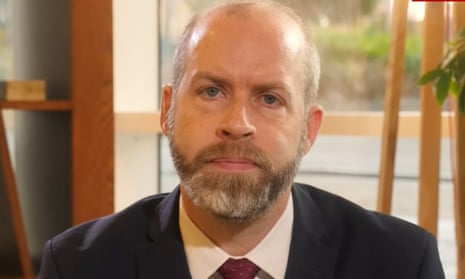|
Eugene Onegin Review: Huffman's interpretation elevates original plot | Theatre | Entertainment There were two moments in this new production of Tchaikovsky's Eugene Onegin which gave me cause for concern. On thinking about them, however, I came to realise that the American director Ted Huffman had in both cases done something profound that increased the intensity of the story. The first surprise came when the curtain opened on a stage in which the only scenery was a couple of nondescript chairs and a small table. I feared we were in for an avant-garde piece of bemusing directorial self-indulgence, but as the story developed, I increasingly understood and appreciated what he was doing. Pushkin's Eugene Onegin is a dramatic tale of romance gone wrong, contrasting the arrogance of Onegin with the naivety of the young Tatyana, who falls in love with him. When she sends him a letter declaring her love, his rejection of her is gentle but self-centred and insensitive, appearing almost cruel. This stark story is about deep human emotions which do not need the distraction of scenery. Pushkin's original verse-novel, of course, relied on words rather than scenery to convey the emotions and the development of the characters. Tchaikovsky added gloriously emotional music to Pushkin's words and that is what we see and hear in Huffman's production. The lack of scenery and the stark design were a little confusing at the start: it is difficult to set a scene without scenery of course, but once the main characters had entered, all became plain. The second directorial shock came in the duel between Onegin and his former best friend Lensky. I shall not give any spoilers, but it indicated a dramatic and perfectly credible change in Onegin's personality that gave added depth to the story. I am usually appalled when directors make drastic changes in the plot of an opera, but in this case I not only forgive but applaud Huffman's brave intuition. His version is - dare I say it - an improvement on Pushkin's narrative. Canadian bass-baritone Gordon Bintner and Armenian tenor Liparit Avetisyan were excellent as Onegin and Lensky, but the real star of the performance was Russian soprano Kristina Mkhitaryan who sang and acted the role of Tatyana superbly. Her vocal range was faultless and her emotional expressiveness through changes in volume and intensity were gripping. Two of the small parts also deserve to be mentioned: American soprano Avery Amereau was excellent as Tatyana's older and more sophisticated sister Olga and the duets between them were a treat, while British bass Brindley Sherratt, although included as a last minute replacement when an original cast member fell ill, gave an excellent performance as Prince Gremin. The Royal Opera House Orchestra gave a fine performance under conductor Henrik Nanasi, keeping a good balance with the singers throughout. Eugene Onegin is playing at the Royal Opera House until 14 October. Source link Posted: 2024-10-02 19:56:16 |
Kindle Paperwhite vs Kindle Colorsoft - Which one to buy
|
|
How we met: ‘We were at the circus, talking nonsense in the queue for the toilets. I really liked her’ | Friendship
|
|
Woman fighting for life after three stabbed at Notting Hill Carnival | UK | News
|
|
What time is Mike Tyson vs Jake Paul: UK ring walk time and how to watch | Boxing | Sport
|
|
Minister rejects claim that Sue Gray showed ‘stunning arrogance’ accepting higher salary than Keir Starmer – UK politics live | Politics
|
|
The beautiful French island planning to cap tourists to one per local | World | News
|
|
'I've spoken to Emma Raducanu's team-mates, this is how her comeback could go' - EXCLUSIVE | Tennis | Sport
|
|
Ohtani, Lindor, Marte finalists for NL MVP; Judge, Witt, Soto contend for AL honour
|
|

